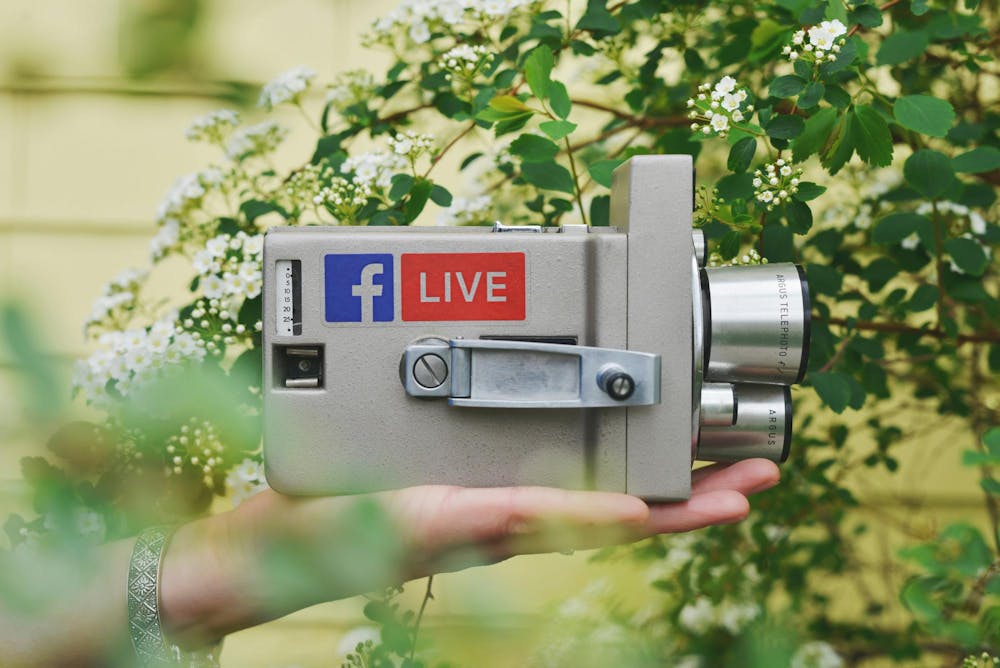When BeReal first took off my freshman year, I knew it was never going to last. My cynicism was encouraged by a clear understanding of what young adults actually use social media for — to gloat. The idea of the 2021 platform, BeReal, was to transform social media from a source of materialistic and often fabricated posts to an outlet for genuine connection. At a random point during the day, a notification would pop up telling users to snap a quick picture of what they were up to. This was supposed to inspire a "real" form of online networking with no editing allowed.
The problem with this new form of social media? People just didn’t listen. Instead of taking a picture immediately when they got the notification, some users chose to wait until they had more fun and social activities planned. While it’s true that scrolling through an endless stream of photos of classmates working on homework assignments is far from fun, it is, in fact, “real.” That’s what we Notre Dame students spend the majority of our time doing. But within a few weeks of its release and quick rise to fame, BeReal became a platform for its users to share the most exciting, social and extravagant things they had done that day, instead of what they might have been doing when the notification really released. Some users would purposefully delay their image, waiting until they got to a party or were at the mall with a group of friends to snap their picture.
It isn’t just that we, as young adults, are still self-conscious and eager to share our social interactions. It’s also that BeReal went entirely against the concept of social media as we knew it. Social media is a realm in which we can be fake, and we all know it. Sure, we can use Snapchat to catch up with an old friend, or we can occasionally use Instagram Reels to find a new recipe for dinner. But the fact of the matter is that we present the best versions of ourselves to our internet community to brag that we went to cool places, that we have the most friends and that we are attractive and adventurous.
With the recent election, social media has also become a platform to share political beliefs. It has not, however, inspired any sort of political conversation across the aisle. Rather, social media has only reinforced echo chambers and invigorated animosity. On the morning after Trump’s victory, I saw a circulation of three types of posts on people’s stories. First, a cry of outrage against the Trump administration, asking how anyone could choose to vote in a President who is a convicted felon and contributed to the events of January 6th. Second, celebrations for the GOP’s triumph and exclamations that “America was back.” Third (and the least common of the three), posts about not letting politics ruin our relationships. These posts assured users that a sign of maturity is tolerance.
The “unfollow” button is one of the most tempting and powerful tools of the modern age. Clicking it leads to no noticeable change for the victim, who likely won’t notice that they’ve lost a follower. But it makes all the difference for you, the unfollower, as you get to decide whose content you choose to view. Social media isn’t just about bragging or informing users of your opinions, it’s also about creating a pseudo-reality. Advanced algorithms let you tell the apps what you want to see. The apps will listen. If you see something you don’t like, you can dislike it or unfollow the creator. On the one hand, this eliminates the possibility for discussion with clashing parties. On the other hand, do Instagram DM’s ever actually produce fruitful conversations?
I told my sister once that I hated going on Instagram and seeing posts from people I met back in 5th grade who I didn’t even know. She advised me just to unfollow them. I argued that this was rude. She defended herself, saying, “You don’t have to look at the content of anyone you don’t want to. You don’t owe them anything.”
We have total autonomy over our platforms and what we choose to do with our social media. In some ways, this is a comforting and empowering thought: we don’t have to look at anything we don’t want to see. In other ways, this is a frightening solution, to know that we can erase any opinions we dislike. This use of the “unfollow” button and the political rhetoric shared on social media reflects a larger issue in our country — the notion of real-life “unfollows” for those people we disagree with. The era of John McCain and President Barrack Obama’s opposition seems so long ago — a time in which presidential candidates could sit down and discuss what they did and did not like about the other’s opinions with mutual respect and understanding, an era without the possibility of “unfollowing.”
Gracie Eppler is a senior business analytics and English major from St. Louis, MO. Her three top three things ever to exist are '70’s music, Nutella and Smith Studio 3, where she can be found dancing. You can reach her at geppler@nd.edu.










